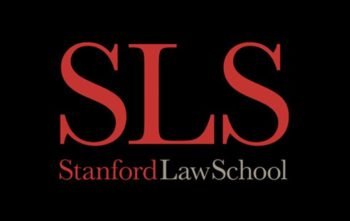Understanding GitHub’s New DMCA Defense Fellowship


On Tuesday, the Stanford Law School announced that it was launching a new GitHub Developer Rights Fellowship as part of its Juelsgaard Intellectual Property and Innovation Clinic. The new fellowship is being funded by the code-sharing website GitHub, which is tapping its $1 million Developer Defense Fund to make it happen.
The move comes on the heels of some trying times for GitHub when it comes to the DMCA. In November 2020, the RIAA filed a Digital Millennium Copyright Act (DMCA) takedown notice against a GitHub project named youtube-dl, which enables the downloading of YouTube videos.
The RIAA claimed that the application violated section 1201 of the DMCA, which prohibits creating and trafficking in tools that circumvent copyright protection measures. Initially, GitHub pulled down the project but restored it after an uproar.
At the time, GitHub, which is owned by Microsoft, vowed to do more to support developers and this is part of those efforts.
But what exactly is GitHub creating and how will it help developers on the platform, we have to look at the original announcement to find out.
One Job with Two Roles

According to the original announcement, the position is a two-year clinical fellowship that will be housed within the Stanford Law School’s Juelsgaard Clinic. It will be under the direction of Professor Phillip R. Malone who has been with the school since 2013 and is the director of the clinic.
When hired, the fellow will essentially have two separate jobs.
The first will be to help GitHub developers assess and respond to DMCA takedown notices, in particular those that are related to Section 1201 cases, similar to the youtube-dl one. The goal here is to help developers understand what their rights and responsibilities are under the law and to push back against “unwarranted” takedown notices.
The second job will be to, “conduct research on and advocate for sound policies for and application of the DMCA, copyright law, and other legal issues important for software innovation.” As part of that, they will train students in the clinic as well as other lawyers on these issues and how to work with developers.
In short, this fellow will serve as free legal counsel for developers that are dealing with certain DMCA notices and as an advocate for developers on the issue more broadly. But while there’s certainly a lot of reasons for GitHub developers to celebrate this, there’s also some limitations that need to be considered.
Limitations and Uncertainties
While the position is certainly unique and potentially useful for some GitHub developers, there are also reasons to temper expectations.
First, the fellow will not be getting involved in all cases involving DMCA takedowns. According to the statement, it will “review and handle appropriate DMCA notices”. However, the definition of what is appropriate is unclear though it does indicate that it will not b e handling all DMCA notices sent to GitHub.
Elsewhere in the statement, it’s clarified that the fellow will “work primarily on helping developers assess and respond to takedown notices under the DMCA, particularly those arising under DMCA Section 1201.” This means that any help or assistance with other DMCA notices, including ones where the code itself or other content uploaded to GitHub is alleged to be unlawful copies, will be limited though it is unclear by how much.
Second, it’s important to note that this grant pays for the fellowship, not a legal defense fund. It is unclear what would happen if a developer were to be sued after getting help from the fellowship. However, both GitHub and the clinic make it clear that this is providing assistance for handling DMCA notice, not necessarily a legal defense.
None of this is to say that the fellowship is useless or pointless, but that it is only a piece of the puzzle. By making this move, GitHub is taking a clear stand on these kinds of takedowns and is trying to correct what it sees as a major misstep in November.
Bottom Line
More than anything, this fellowship is a signal. It’s a signal that GitHub sees Section 1201 DMCA takedowns as a serious and complex matter that it wants to help developers navigate. This fellowship isn’t a total solution for the problem they perceive, but it can’t really be that.
The issue is extremely complicated and nuanced and, given the expense of copyright lawsuits, it’s one that’s going to be resolved by those with the deepest pockets.
What GitHub is offering is a chance for smaller developers, in particular open source developers, a chance to get some free professional guidance on these issues. While that may not sound like much, it’s a lot more than what those developers had before.
According to GitHub’s transparency report, In the past month (as of this writing), they have dealt with some 138 DMCA notices and only one counternotice. It’s unclear how many of those notices deal with Section 1201 disputes versus more traditional issues of copied code and other content.
So while the DMCA takedown issue is a major one from a public relations standpoint, it’s much less so from a practical one. Still, it’s clear that GitHub is passionate about this issue and wants to help not just its developers make greater sense of it, but to address the issue more broadly as well.
How that pans out it something only time will tell…
Want to Reuse or Republish this Content?
If you want to feature this article in your site, classroom or elsewhere, just let us know! We usually grant permission within 24 hours.